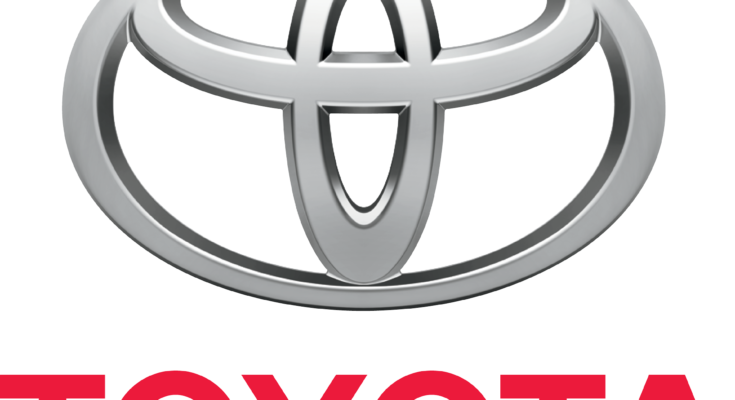Here’s an overview:
- Introduction to Toyota Motor Corporation
- Historical Foundations and Key Milestones
- Pioneering the Automobile Industry
- Toyota’s Philosophy: The Toyota Way
- Development and Evolution of Iconic Models
- Environmental Impact and Sustainable Practices
- Key Initiatives:
- Global Environmental Goals:
- Advancements in Automotive Technology
- Toyota’s Global Market Strategy
- Challenges and Adaptations in a Changing Market
- Future Innovations and Vision for the Next Decade
- Conclusion: Toyota’s Enduring Legacy and Ongoing Innovation
Introduction to Toyota Motor Corporation
Founded in 1937 by Kiichiro Toyoda, Toyota Motor Corporation is a Japanese multinational automotive manufacturer headquartered in Toyota City, Aichi Prefecture, Japan. It is one of the world’s largest automobile manufacturers, producing over 10 million vehicles each year. Toyota is known for:
- Innovation in automotive technology
- Introduction of lean manufacturing techniques
- Commitment to sustainability and environmental responsibility
The company produces a diverse range of vehicles, including:
- Cars
- Trucks
- Hybrids
- Electric vehicles
By continually evolving, Toyota has maintained its position as a leader in the global automotive industry.
Historical Foundations and Key Milestones
Toyota Motor Corporation, originally established as a division of Toyoda Automatic Loom Works, embarked on its automotive journey in 1933.
- 1936: Release of the first passenger car, the Model AA.
- 1950: Formation of Toyota Motor Sales Co., Ltd.
- 1957: Toyota opens its first dealership in the United States and launches the Toyopet Crown.
- 1966: Introduction of the Corolla, one of the best-selling cars of all time.
- 1989: Launch of the Lexus luxury brand.
- 1997: Debut of the Prius, pioneering mass-market hybrid-electric vehicle.
- 2008: Toyota becomes the world’s largest automobile manufacturer.
Pioneering the Automobile Industry
Toyota Motor Corporation emerged in 1937 under Kiichiro Toyoda’s vision. The company revolutionized car manufacturing with innovative practices such as:
- Just-In-Time Production: Minimized inventory costs by producing only what was needed, when it was needed.
- Kaizen Philosophy: Continuous improvement approach involving all employees.
- Lean Manufacturing: Streamlined processes to eliminate waste and boost efficiency.
Toyota introduced groundbreaking models like the Toyota Prius in 1997, the first mass-produced hybrid vehicle, setting new environmental standards. Toyota’s dedication to quality, durability, and customer satisfaction established it as a global titan in the automotive industry.
Toyota’s Philosophy: The Toyota Way
The Toyota Way encapsulates the company’s management philosophy and business practices. It is grounded in two main pillars:
- Continuous Improvement:
- Strive for perfection.
- Embrace challenges.
- Drive innovation and improvement.
- Respect for People:
- Foster individual growth and teamwork.
- Build mutual trust and respect.
- Encourage every employee’s participation.
Key principles include:
- Genchi Genbutsu (Go and See): Emphasizes the importance of firsthand understanding.
- Kaizen: Continuous improvement in all aspects.
- Respect: Show respect to everyone.
- Teamwork: Enhance collective effort.
Development and Evolution of Iconic Models
Toyota’s journey in the automobile industry has led to the creation of several legendary models.
- The Toyota Corolla, first introduced in 1966, has become a global favorite, known for its reliability and affordable pricing.
- The Toyota Camry, launched in 1982, achieved success as a mid-size sedan in North America, offering luxury and performance.
- The Land Cruiser, a symbol of durability, has been a trusted name in rugged, off-road vehicles since 1951.
- The Toyota Prius, introduced in 1997, revolutionized the market as the first mass-produced hybrid car, emphasizing environmental sustainability.
Environmental Impact and Sustainable Practices
Toyota’s commitment to reducing environmental impact is evident through several initiatives aimed at sustainability. The company has pioneered the development of hybrid technology, with the Prius being a notable example.
Key Initiatives:
- Hybrid Technology: Introduction of the Prius, the world’s first mass-produced hybrid car, reducing emissions significantly.
- Zero Emissions: Development of hydrogen fuel cell vehicles like the Mirai.
- Resource Efficiency: Use of recycled materials in vehicle production.
“Toyota’s Environmental Challenge 2050 aims to eliminate CO2 emissions in all new car sales by 2050.”
Global Environmental Goals:
- Reduce CO2 emissions
- Promote a recycling-based society
- Minimize water usage
Toyota continues to innovate for a greener planet.
Advancements in Automotive Technology
Toyota Motor Corporation continuously strives to innovate and push the boundaries of automotive technology. Key areas of focus include:
- Hybrid Technology: Toyota pioneered hybrid vehicles with the launch of the Prius in 1997. This innovation combines an electric motor with a traditional internal combustion engine for improved fuel efficiency.
- Autonomous Driving: Developing advanced driver-assistance systems, such as Automated Parking and Adaptive Cruise Control.
- Hydrogen Fuel Cells: Toyota introduced the Mirai, a hydrogen fuel cell vehicle that emits only water vapor.
- Connected Cars: Implementing Toyota’s Mobility Services Platform to create a more connected driving experience through real-time data and app integration.
- Safety Features: Enhancing safety via the Toyota Safety Sense package which includes Pre-Collision System, Lane Departure Alert, and Automatic High Beams.
Toyota’s Global Market Strategy
Toyota employs a multifaceted approach to maintain a strong global presence. Key components include:
- Localization: Establishing manufacturing plants worldwide for cost efficiency and job creation.
- Market Research: In-depth analysis to tailor vehicles to regional preferences.
- Innovation: Cutting-edge technologies focusing on hybrid and electric vehicles.
- Sustainability: Commitment to reducing carbon footprint through eco-friendly practices.
- Brand Image: Consistent branding efforts to maintain a reputation for reliability and quality.
- Expand Product Range: Offering diverse models from affordable to luxury segments.
- Strategic Partnerships: Collaborating with local companies to enhance market penetration.
Challenges and Adaptations in a Changing Market
Toyota Motor Corporation has faced numerous challenges as the automotive industry evolves. Key issues include:
- Globalization: Navigating diverse markets with varying regulations.
- Technological Advances: Keeping up with rapid technological changes.
- Environmental Regulations: Adhering to stringent environmental laws.
- Consumer Preferences: Adapting to shifting consumer expectations and demands.
- Supply Chain Disruptions: Managing global supply chain issues.
To address these challenges, Toyota has:
- Invested in R&D: Focusing on hybrid and electric vehicles.
- Adopted Agile Manufacturing: Enhancing production flexibility.
- Expanded Partnerships: Collaborating with tech companies and other automakers.
- Diversified Products: Offering a wider range of vehicles to meet market needs.
Future Innovations and Vision for the Next Decade
Toyota envisions significant advancements in automotive technology:
- Electric Vehicles (EVs): Expansion of EV lineup, including solid-state battery technology.
- Autonomous Driving: Development of self-driving features to enhance safety and convenience.
- Sustainability: Investments in hydrogen fuel cell technology to reduce carbon footprint.
- Smart Mobility: Integration of connected car technologies for improved user experience.
- Global Markets: Expansion into emerging markets with tailored vehicle models.
- Artificial Intelligence (AI): Enhanced in-car AI systems for better human-vehicle interaction.
- Manufacturing: Adoption of Industry 4.0 practices for efficient production processes.
Conclusion: Toyota’s Enduring Legacy and Ongoing Innovation
Toyota’s commitment to quality and innovation has positioned it as a leader in the automotive industry. Key areas include:
- Sustainability: Toyota has pioneered hybrid technology with the Prius, promoting eco-friendly transportation.
- Safety: The development of advanced driver-assistance systems (ADAS) prioritizes customer safety.
- Mobility Solutions: Projects like the Toyota Mobility Foundation focus on creating smarter, more accessible transportation.
- Global Reach: With manufacturing plants worldwide, Toyota caters to diverse markets.
- Innovation Culture: Emphasis on Kaizen (continuous improvement) fosters a culture of ongoing innovation and efficiency.



